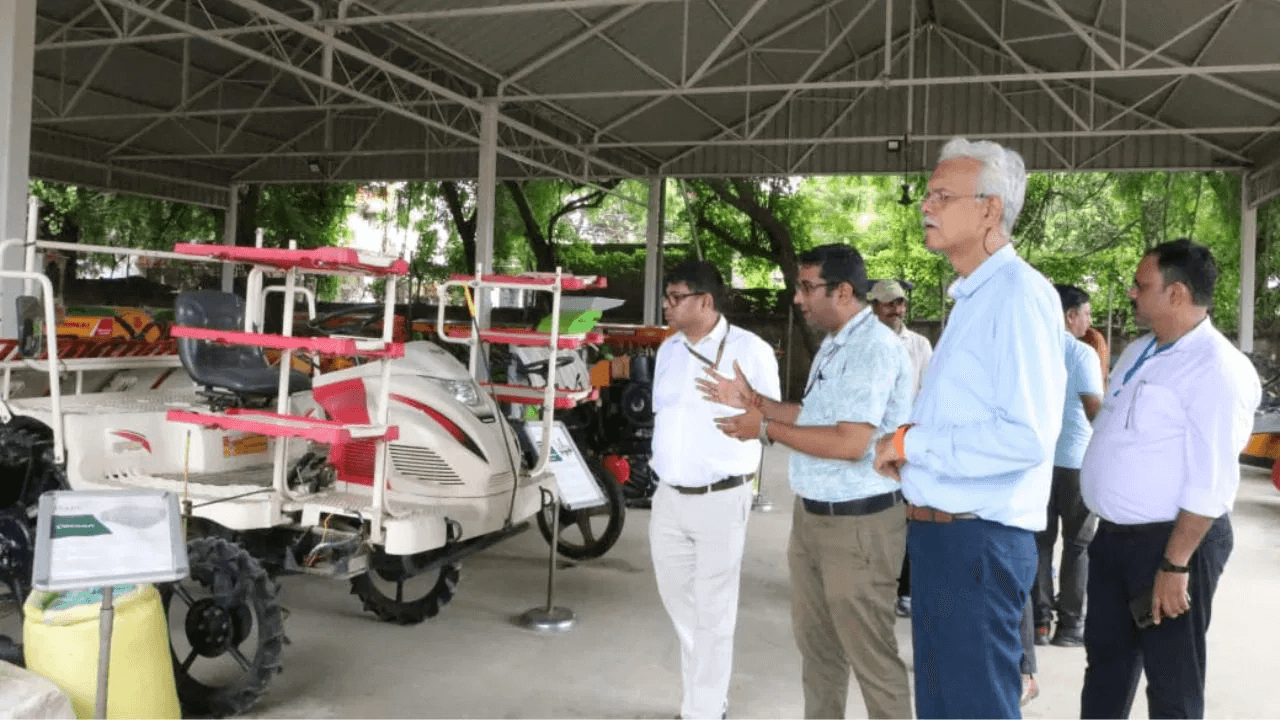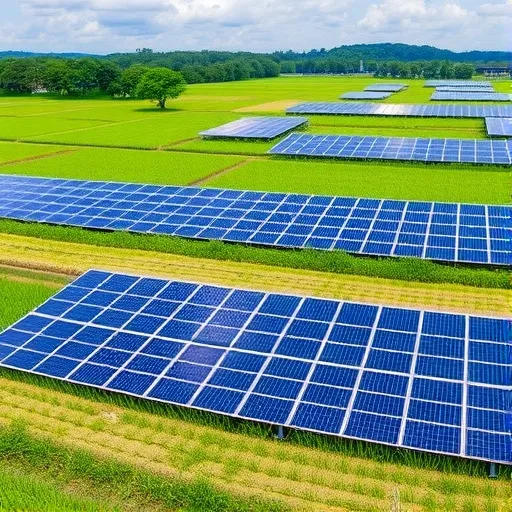Tags
Circularity in action: Transformative technology for a sustainable future
I. The importance of sustainable food systems
The United Nations (UN) predicts that the world’s population will reach 10 billion people in 2057, which is likely to intensify the pressure on worldwide resources. India, in particular, faces significant growth challenges as it targets to evolve into a developed economy by 204. On the one hand, there is rising consumer demand from the largest global population, and on the other hand, there is heavy reliance on fossil fuels and unsustainable manufacturing practices.
As the pressure to sustain this rising population grows, there is an urgency to ensure long-term food security as a part of the effort to build climate resilience. Sustainable food systems are essential for our planet’s well-being and the health of its inhabitants. As the global population continues to grow, ensuring access to nutritious and safe food while minimising environmental degradation is paramount.
II. String Bio’s solution: Using fermentation to create a circular loop
In response to this escalating demand for sustainable agricultural solutions and long-term food security, String Bio has developed a pioneering technology that utilises advanced microbial fermentation to convert the greenhouse gas (GHG) methane into valuable products, which can be utilised across various industries, ranging from agriculture, human nutrition to animal feed and personal care sectors.
Rice production contributes to around 10-13 percent of annual methane emissions and its total GHG output puts it on a par with international aviation.
By harnessing the converted methane, String Bio’s technology can be seamlessly integrated into agricultural practices, bolstering crop productivity, enhancing crop health and decreasing methane output from agriculture. For example, rice is the dominating cereal crop in Asia with more than 90 per cent of the world’s rice occupying 140 million hectares located on the continent. It also means that Asia is responsible for large scale methane emissions from this crop production. Rice production contributes to around 10-13 percent of annual methane emissions and its total GHG output puts it on a par with international aviation.
String’s agricultural input, CleanRise, is an innovative bio-stimulant that creates a healthy bioactive complex enabling robust vegetative growth. Its use case in paddy cultivation has shown exceptional results, namely in demonstrating yield increases of up to 40 percent from field trials across a variety of crops. In rice, there are even more marked and significant results: The use of CleanRise results in a 33-percent increase in grain yield in treated crops. In addition, the use of CleanRise decreases methane and nitrous oxide emissions up to 60 percent and 40 percent respectively over untreated crops. This has resulted in a disruptive solution that not only increases rice yield and return on investment (ROI) for farmers but also reduces GHG emissions from agriculture. If we are able to implement this product in ~10 percent of global paddy fields, we can achieve 23 percent of the COP26 per annum methane reduction target, and its implementation in ~50 percent of global paddy fields can surpass this target.

Furthermore, the production of high-quality animal feed using String Bio’s platform is an ethical and sustainable solution to meet the growing demand for nutritional sources in industries such as aquaculture, poultry and swine farming. String Bio’s solution exemplifies the principles of circularity, ensuring the efficient utilisation of resources. By actively reducing methane emissions and repurposing it for valuable applications, String Bio’s process minimises waste and environmental impact. This circular approach aligns with the ethos of sustainable development and promotes a harmonious relationship between industry and the environment.
String Bio’s solution exemplifies the principles of circularity, ensuring the efficient utilisation of resources. By actively reducing methane emissions and repurposing it for valuable applications, String Bio’s process minimises waste and environmental impact.
Moreover, the scalability and adaptability of String Bio’s technology make it a compelling asset in the pursuit of a green economy. The solution can be implemented on various scales, from localised operations to large-scale industrial applications. This adaptability allows for seamless integration into existing infrastructures.
In addition to environmental benefits, String Bio’s solution brings about positive social impacts, particularly for local communities. Farmers and marginalised groups stand to gain improved livelihoods and economic opportunities. By integrating String Bio’s technology into their operations, farmers can improve their ROI, enhance their crop resilience, and contribute to sustainable agricultural practices. This inclusive approach strengthens local economies, empowers communities, and fosters social equity.
III. Challenges to scale and recommendations for key stakeholders
While innovative technologies building capacity for climate resilience hold immense potential, scaling up these solutions presents several challenges that need to be addressed. Substantial investments in infrastructure, research, and development are imperative to unlock the full potential of these technologies. Collaborative efforts between governments, private enterprises, and research institutions are critical to providing the necessary financial resources and expertise to expedite the scaling process of deep tech startups.
Furthermore, navigating complex and fragmented regulatory frameworks poses additional challenges that must be overcome through streamlined processes and intergovernmental collaboration. To accelerate the adoption of solutions such as String Bio, support from policymakers is crucial. Advocacy for favourable policies and regulations that promote sustainable technologies and provide incentives for their implementation is necessary.
Policymakers must recognise the value of these new-age technology solutions in addressing energy challenges and achieving climate goals.
By fostering an enabling environment for investment and innovation, key actors can support String Bio’s journey towards widespread adoption.
Moreover, addressing the financial constraints and investment challenges associated with scaling up the technology is crucial, through government or private grants, venture capital or debt financing. In this vein, innovative funding mechanisms, public-private partnerships, and international cooperation can play a pivotal role in mobilising the necessary resources. By fostering an enabling environment for investment and innovation, key actors can support String Bio’s journey towards widespread adoption.
Finally, today, the positioning of the products manufactured from this platform is exclusively based on value from manufacturing and product use benefits to end users. The establishment of a robust carbon framework (locally and globally) would enable further monetisation through the generation and sale of carbon offsets in the process, which can add further value creation from these solutions.
IV. Conclusion
Advanced biomanufacturing is a critical and growing sector that is driving the change from petrochemicals to sustainable biobased solutions. India can play a key role in enabling biomanufacturing globally and enable this transition. String Bio’s journey serves as an illustration of how innovation can push for sustainability and propel the transition towards a low-carbon economy. With a commitment to circularity, String Bio not only optimises resource utilisation but also contributes to the resilience of our food systems, paving the way for a more sustainable future.
As innovators like us continue to forge ahead, expanding our horizons and refining our approaches, it becomes evident that a robust ecosystem of support and incentives across the value chain is essential. Through this collective drive, we have the potential to usher in a new era where technology innovation translates into measurable environmental and societal impact.
https://www.orfonline.org/expert-speak/circularity-in-action-transformative-technology-for-a-sustainable-future/Published Date: November 1, 2023






